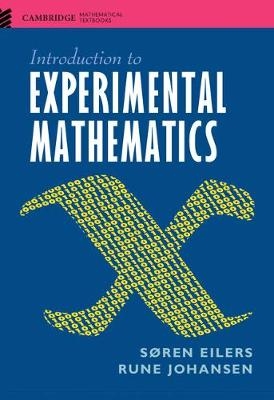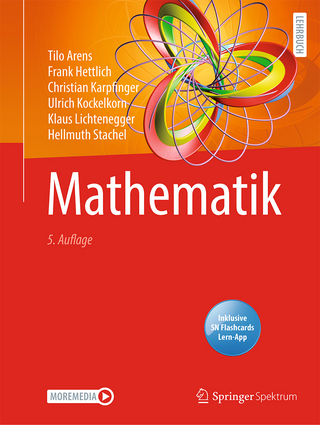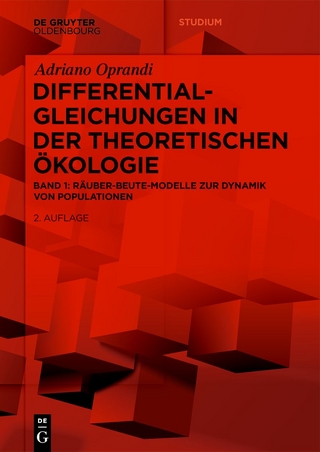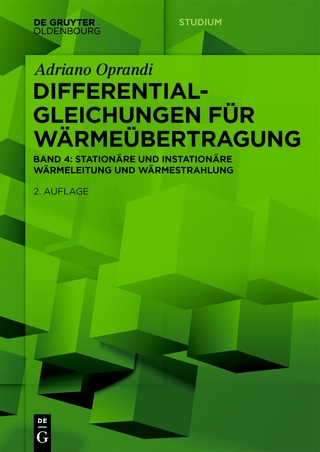
Introduction to Experimental Mathematics
Seiten
2017
Cambridge University Press (Verlag)
978-1-107-15613-5 (ISBN)
Cambridge University Press (Verlag)
978-1-107-15613-5 (ISBN)
A recent surge in computer-based experimental approaches to pure mathematics is revolutionizing the way research mathematicians work. As the first of its kind, this textbook provides students with an introduction to the ends and means of experimental mathematics using the popular computer algebra system Maple.
Mathematics is not, and never will be, an empirical science, but mathematicians are finding that the use of computers and specialized software allows the generation of mathematical insight in the form of conjectures and examples, which pave the way for theorems and their proofs. In this way, the experimental approach to pure mathematics is revolutionizing the way research mathematicians work. As the first of its kind, this book provides material for a one-semester course in experimental mathematics that will give students the tools and training needed to systematically investigate and develop mathematical theory using computer programs written in Maple. Accessible to readers without prior programming experience, and using examples of concrete mathematical problems to illustrate a wide range of techniques, the book gives a thorough introduction to the field of experimental mathematics, which will prepare students for the challenge posed by open mathematical problems.
Mathematics is not, and never will be, an empirical science, but mathematicians are finding that the use of computers and specialized software allows the generation of mathematical insight in the form of conjectures and examples, which pave the way for theorems and their proofs. In this way, the experimental approach to pure mathematics is revolutionizing the way research mathematicians work. As the first of its kind, this book provides material for a one-semester course in experimental mathematics that will give students the tools and training needed to systematically investigate and develop mathematical theory using computer programs written in Maple. Accessible to readers without prior programming experience, and using examples of concrete mathematical problems to illustrate a wide range of techniques, the book gives a thorough introduction to the field of experimental mathematics, which will prepare students for the challenge posed by open mathematical problems.
Søren Eilers is a professor of mathematics at the University of Copenhagen who heads the VILLUM Foundation Network for Experimental Mathematics in Number Theory, Operator Algebras, and Topology. He has received numerous teaching prizes as well as an outreach prize for developing the mathematics of LEGO, and is an expert of the classification of C*-algebras. Rune Johansen was the first postdoc in experimental mathematics in Denmark, specializing in symbolic dynamics.
1. Experimental method; 2. Basic programming in Maple; 3. Iteration and recursion; 4. Visualization; 5. Symbolic inversion; 6. Pseudorandomness; 7. Time, memory and precision; 8. Applications of linear algebra and graph theory.
| Erscheinungsdatum | 15.06.2017 |
|---|---|
| Reihe/Serie | Cambridge Mathematical Textbooks |
| Verlagsort | Cambridge |
| Sprache | englisch |
| Maße | 183 x 260 mm |
| Gewicht | 800 g |
| Themenwelt | Mathematik / Informatik ► Informatik |
| Mathematik / Informatik ► Mathematik ► Analysis | |
| Mathematik / Informatik ► Mathematik ► Angewandte Mathematik | |
| Mathematik / Informatik ► Mathematik ► Finanz- / Wirtschaftsmathematik | |
| Mathematik / Informatik ► Mathematik ► Geometrie / Topologie | |
| ISBN-10 | 1-107-15613-0 / 1107156130 |
| ISBN-13 | 978-1-107-15613-5 / 9781107156135 |
| Zustand | Neuware |
| Informationen gemäß Produktsicherheitsverordnung (GPSR) | |
| Haben Sie eine Frage zum Produkt? |
Mehr entdecken
aus dem Bereich
aus dem Bereich
Buch | Softcover (2024)
De Gruyter Oldenbourg (Verlag)
59,95 €
Buch | Softcover (2024)
De Gruyter Oldenbourg (Verlag)
59,95 €


